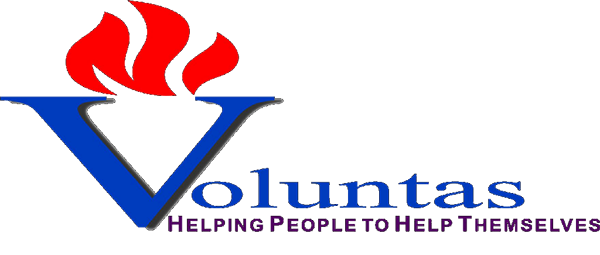
Voluntas does not have clients or aid recipients. Everyone we work with is a partner. We do not impose a point of view, define problems or compel solutions. We rely on our partners to do that. Voluntas supplies resources, provides training, information and expertise, and builds bridges between communities in Belarus and abroad. This is an approach which has achieved tremendous, sustainable results for nearly twenty years. Most importantly, Voluntas enables aspiration.
Voluntas assists communities and individuals to become self-sufficient. We promote systemic change. We prefer to work at the local level where we can make the greatest difference. It is also at that level that individuals and communities can have the biggest impact in shaping their own futures and contribute nation wide systemic change. Voluntas is proud that virtually all of its projects were initiated in response to requests from our partners in local communities and organisations which defined their needs, aspirations and desired outcomes.
By working at the local, grassroots level we find that sustainable, systemic change is effectively, efficiently and economically established and achieved.
Amongst our current initiatives:
Every Family Deserves to Succeed: Family breakdown, in both single and two-parent families, can occur for many reasons: poverty, social pressures, substance abuse, death or illness in the family, and  absence of extended family s upport are just some of them. One thing is certain, the children always suffer. In the worst cases they may even be placed in institutional care; it is likely that when they begin families the cycle will repeat.
absence of extended family s upport are just some of them. One thing is certain, the children always suffer. In the worst cases they may even be placed in institutional care; it is likely that when they begin families the cycle will repeat.
Voluntas’ programme for families at risk uses an innovative peer family mentoring approach that brings together families at risk and helps them to help each other. These established groups provide long term, sustainable support of their members and, over time, for other families facing the same problems. The programme is continuously monitored and evaluated. The success rate is high and families are learning to succeed.
Family-Led Therapy for Disabled Children: Prior to the establishment of this programme in 2001 the majority of children with profound multiple learning disabilities were placed in institutional care shortly after birth. This was damaging to their families and, effectively, doomed the children to a lifetime of institutionalisation. Now this programme of structured reassessment and targeted therapy has reversed this grim destiny. This programme enables families to care for their children at home with a guided customised plan of parent-led therapy which provides the benefits of family life. Often this has led to the progress of children into mainstream education and a future within the wider community.
Deinstitutionalisation and Transition: Children and young adults who have spent extended periods of time in institutional care, sometimes from infancy to 18 years of age,  frequently have bad outcomes when adjusting to independent living. These include elevated rates of suicide, alcohol and substance abuse, unintended pregnancy, human trafficking, employment problems, and pressure by criminals into illegal activities. This is largely because they have not been prepared for independent life. Voluntas’ deinstitutionalisation and transition programme works with these individuals while they are still in care to provide them with a structured personalised approach to equip for life outside the institution. They are then followed and supported for several years after leaving care to help them to acquire the skills and aspirations which help them integrate into the wider community. Assisting in this are professional care workers and volunteers from local communities.
frequently have bad outcomes when adjusting to independent living. These include elevated rates of suicide, alcohol and substance abuse, unintended pregnancy, human trafficking, employment problems, and pressure by criminals into illegal activities. This is largely because they have not been prepared for independent life. Voluntas’ deinstitutionalisation and transition programme works with these individuals while they are still in care to provide them with a structured personalised approach to equip for life outside the institution. They are then followed and supported for several years after leaving care to help them to acquire the skills and aspirations which help them integrate into the wider community. Assisting in this are professional care workers and volunteers from local communities.
Resource Centres: To assure sustainability of Voluntas’ initiatives we and our partners have established regional resource centres across the country to support families at risk, professionals and families with children with profound multiple learning disabilities. Resource centres offer teaching materials, tools for learning, training, advice and consulting. They are embedded in existing facilities, such as children’s education and rehabilitation centres which are supported and maintained by local authorities.
Seminars, Workshops and Training for Best Practice: Knowledge is essential for people and communities to help themselves. Voluntas brings expertise from around Belarus and abroad to disseminate best practice in a range of fields , including autism, Down’s syndrome , inclusive education, therapies, profound multiple learning disabilities and deinstitutionalisation. Our model is to train trainers to train other trainers. This has increased our outreach enormously in Belarus and abroad. We provide training locally on site and nationally. It is important for us that our training is developed in response to stated needs from our partners. Especially valuable are regional and national workshops and seminars which allow for exchanges of ideas and experiences. We are always on the lookout for expertise and welcome expert participation from abroad.
practice in a range of fields , including autism, Down’s syndrome , inclusive education, therapies, profound multiple learning disabilities and deinstitutionalisation. Our model is to train trainers to train other trainers. This has increased our outreach enormously in Belarus and abroad. We provide training locally on site and nationally. It is important for us that our training is developed in response to stated needs from our partners. Especially valuable are regional and national workshops and seminars which allow for exchanges of ideas and experiences. We are always on the lookout for expertise and welcome expert participation from abroad.
Inclusion and Inclusive Environments: Every child has the right to an education suited to her or his needs and abilities. Unfortunately children with special learning or physical needs may often be denied this opportunity which is their right. We believe that each child is differently gifted and challenged. It is necessary to understand the way the child can learn. Voluntas develops inclusive education systems which are tailored according to the child’s needs not vice versa by altering the education environments. This is achieved in four stages: 1. creating an inclusive environment in educational institutions and involving parents in the educational process, 2. structuring the educational process at school and home, 3. continuation at home of the educational model (the skills and abilities developed at school are practised at home). The parents are always partners in the process 4. creating an inclusive environment in local communities to provide support systems. At every step parents and the wider community participate and help to lead in this initiative to create inclusive environments.
Novi Dom Centre: The centre was established with funding from local and foreign donors and with the cooperation and funding of the Minsk City Partisanski District in 2002. Novi Dom Serves children ages 0-18 with profound multiple learning and physical disabilities and their families. To our mind it is the premier centre of its kind in Belarus. The service provides daycare for children 3-18; advanced therapies, consulting, home visits, and training for parents and professionals from around the nation. Best practice is disseminated through national training workshops at Novi Dom as part of our outreach programmes. Experts from abroad frequently present and consult at Novi Dom. Recently we have installed a sensory integration facility and hope to eventually provide respite care.
These are just a few of our ongoing programmes. More are always being added and they all emphasise Self-Sufficiency. In every instance we are guided by the advice and needs of the local community. They are always our co-initiators, partners and volunteers in all of our activities.
We place special emphasis on Autism and Down’s syndrome and provide ongoing training in these areas for virtually all of the Children’s Rehabilitation and Education Centres across Belarus. Additionally we have established permanent resource centres in every region for families, carers and educators dealing with Autism and Down’s syndrome. With these and all of our other activities we make sure that our outreach is into the often neglected rural communities.
We work with national and local government agencies, ministries and departments. Amongst these are the Department of Special Education, the Department of Labour and Social Protection, Department of Health, Department of Education, and Department of Humanitarian Aid. We are also a consultant for UNICEF on deinstitutionalisation and child protection. Most importantly we think is our dedication to harnessing grassroots activism at the local level.
We consider all the people we work with, both the facilitators and beneficiaries, as our partners. It is they who help define and shape all of our projects to meet empirically determined requirements and to utilise existing resources. As a result we are able to embed our projects in local communities and existing facilities to assure sustainable systemic change.
Please join us: WE ARE ALWAYS SEEKING INSPIRATION AND PARTNERS.
Please let us have your ideas and suggestions. They are all and always welcome.
Please click here to let us know what you think: Your Ideas & Suggestions

